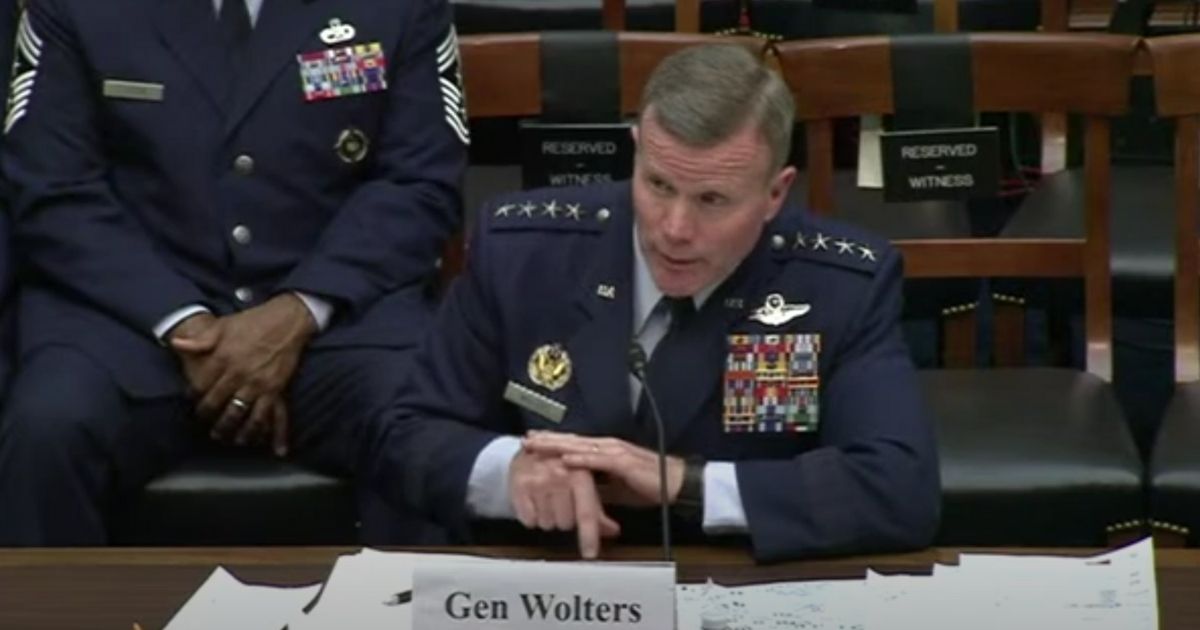The Russia-Ukraine war has been underway for more than a month now.
As the U.S. continues to weigh appropriate responses to the situation, the House Armed Services Committee is holding a hearing and asking questions of General Tod Wolters, who heads the U.S European Command.
Wolters admitted during his testimony that the strategy to deter Russia’s invasion of Ukraine failed, Fox News reported.
“Did you consider it part of your mission to deter a Russian invasion of Ukraine?” GOP Rep. Mike Gallagher of Wisconsin asked Wolters.
Wolters confirmed this, adding that he was part of an interagency effort meant to “deter and dissuade” Russian President Putin from invading Ukraine.
“Would it be fair to say that deterrence failed in Ukraine?” Gallagher asked.
“Number one I would say that NATO’s solidarity remained,” Wolters said.
But Gallagher cut off Wolters, saying that the issue with NATO was a separate question.
“I can’t argue with your conclusion,” Wolters then answered.
Gallagher noted that he did not bring up the failed deterrence in Ukraine to score a partisan point, but simply to understand why this failure happened.
“Particularly as we now have anonymous senior Pentagon officials bragging to the Washington Post about the success of integrated deterrence in Ukraine,” Gallagher said.
This was a reference to some senior Pentagon officials anonymously speaking to the Washington Post and touting that the “integrated deterrence efforts” — using economic, diplomatic and military power to leverage a position to deter Russia and other potential aggressors — has been working.
These Pentagon officials said that the tactics of deterrence have worked to “stop Putin from expanding the war into NATO territory. The Biden administration has made integrated deterrence the cornerstone of its soon-to-be released National Defense Strategy, which was delayed as the threat of an invasion grew,” the Washington Post reported.
The Biden administration continues to claim that the sanctions, in particular, are meant to deter Russia’s aggression.
“Sanctions can be a powerful tool,” White House Press Secretary Jen Psaki said, Fox News reported.
“They have been in a lot of moments throughout history. And what we view them as – or how we’re viewing them as we’re starting high, as Daleep just conveyed here, in terms of the significance and the severity of the sanctions that were announced today – yes, our intention is to have a deterrent effect,” Psaki added.
But Wolters clearly stated that deterrence efforts failed, since Russia continues to attack Ukraine.
In fact, all peace talks between Russia and Ukraine have made little progress.
In talks on March 29 in Istanbul, Ukraine offered to never join NATO in exchange for security guarantees, Insider reported.
Russia said it is considering pulling back some of its assaults on the Ukrainian cities of Kyiv and Chernihiv.
But these things have not yet taken place. The situation remains largely unaltered and Russia undeterred, despite claims from the administration and even the Pentagon.
This article appeared originally on The Western Journal.

























 Continue with Google
Continue with Google